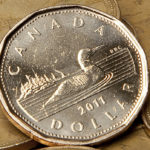Japanese yen managed to pull back from almost two-week lows against the US dollar, after Asian shares declined for the second consecutive day on concerns that cash shrinkage in China could curb economic growth and therefore, boost safe haven demand for national currency.
“The price action is fearful because of the potential for slowing Chinese growth,” said Chris Weston, the chief market strategist at IG Markets in Melbourne, cited by Bloomberg. “The yen has for some years now been the ultimate safe haven.”, he also added.
USD/JPY hit a session low at 97.26 during the later hours of Asian trade, after which consolidation followed at 97.51. The cross was still down by 0.21% for the day. Support was expected at June 21st low, 96.85, while resistance was likely to be met at June 24th high, 98.70.
The Dollar Index, which Intercontinental Exchange Inc. uses to track greenbacks performance against a basket of six US trading partners currencies, traded at 82.336 from 82.425 yesterday, which was the highest closing level since June 5th, Bloomberg imparted.
Additionally, The MSCI Asia Pacific Index of shares erased 0.5%, while the CSI 300 Index (SHSZ300), that is comprised of the largest companies in China, fell by 0.3%, after decreasing as much as 6.8%. China’s central bank released on Monday a week-old statement, saying Chinese liquidity was “reasonable,” indicating that no relief was expected from the cash shrinkage. On Monday Goldman Sachs Group Inc. and China International Capital Corp. joined banks from Barclays Plc to HSBC Holdings Plc in reducing 2013 growth projections for China.
Meanwhile, Japan’s Nikkei 225 and Shanghai’s stock exchange ended on lower levels on Tuesday, as fears over financial stability in China were introduced among market players.
Japanese yen was stable against the euro, as EUR/JPY pair dropped by a mere 0.04% to 128.15.





